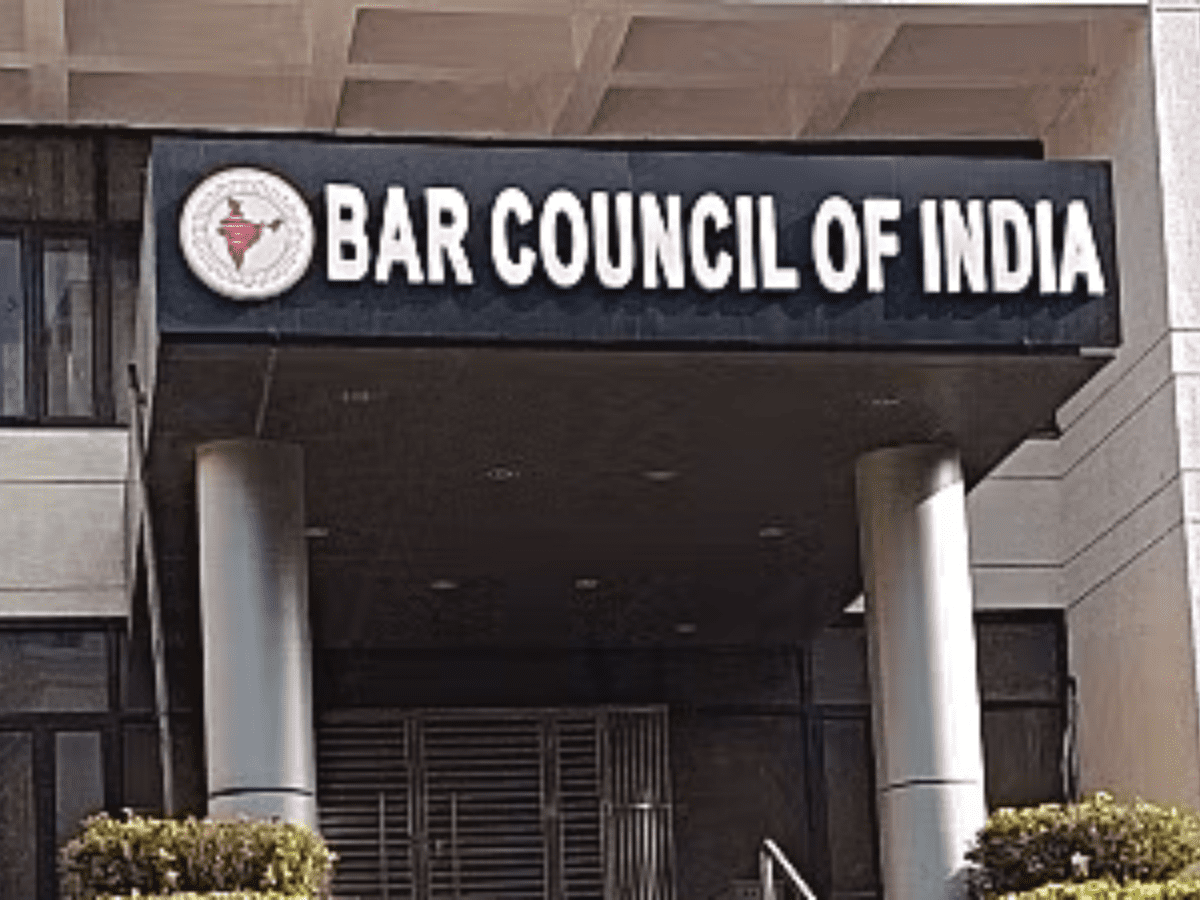
Foreign lawyers and law firms can now practice in Indian courts n a reciprocity basis, the Bar Council of India said on Wednesday.
According to the latest Bar Council of India Rules for Registration and Regulation of Foreign Lawyers and Foreign Law Firms in India, 2022, registered international advocates and law firms can now practice law in a restricted, well-controlled and regulated manner.
According to Bar and Bench, the BCI stated that India is not in a position of disadvantage due to the new rule.
“Time has come to take a call on the issue. Bar Council of India is of the view that opening up law practice in India to foreign lawyers in the field of practice of foreign law; diverse international legal issues in nonlitigious matters and in international arbitration cases would go a long way in helping legal profession/domain grow in India to the benefit of lawyers in India too,” the BCI stated.
“…it would be mutually beneficial for lawyers from India and abroad and these Rules are an attempt by the Bar Council of India in this direction. These rules will also help to address the concerns expressed about the flow of Foreign Direct Investment in the country and making India a hub of International Commercial Arbitration…Let us ensure that an opportunity for creating development and growth for the legal profession and in the legal sphere in India is not lost,” it added.
An application for registration of foreign lawyers/law firms, which is valid for a period of five years, must be accompanied by the following documents:
- A certificate from the Government of India, (Ministry of Law & Justice and Ministry of External Affairs and Trade) that an effective legal system exists in concerned foreign country of the primary qualification and that it has no objection in case the applicant is registered under these Rules and practices law in India; (However the Bar Council of India may seek any information from any departments/Ministries of any foreign Countries, if it thinks necessary and/or it may contact any. Foreign Government/Department in case if any information required.)
- A certificate from the Competent Authority of the concerned foreign country of primary qualification certifying that the applicant is entitled to practice law in that Country;
- A certificate from the Government of the foreign country of primary qualification that advocates enrolled under the Advocates Act, 1961 are permitted to practice law in that country in the manner and to the extent which is comparable to the law practice permitted under these Rules along with copies of the relevant Laws and Rules;
- A certificate from the Competent Authority of the concerned country of primary qualification or any other competent authority/ies, Courts, Bar Association, Bar Council etc. that the applicant has been in practice in that country;
- A certificate of the competent authority of the concerned foreign country of primary qualification that no proceedings of professional or other misconduct are pending either before it or before any other authority competent to entertain and decide such proceedings;
- A certificate of the competent authority of the concerned foreign country of primary qualification giving details of the fee structure and other amounts chargeable from an advocate enrolled under the Act for enabling him to practice law in that country along with relevant Rules and Laws;
- ‘No objection Certificate’ of the competent authority of the concerned foreign country of primary qualification that it has no objection in case the applicant starts law practice in India and that the applicant enjoys a good standing in the Bar.
- A declaration on affidavit that the applicant has not been convicted of any offence and has not suffered any adverse order in any disciplinary matter. (In case he has suffered relevant attested any conviction/adverse order, copies of the order of conviction/adverse order and other related documents about the matter like appeal and stay, if any, or sentence/fine suffered/paid etc. are to be annexed);
- A declaration on affidavit that the applicant has no objection and consents to the making of enquiries and investigation by the Bar Council of India on its own or through such government or non-government investigating agency, as it may deem fit, to verify the veracity of the particulars disclosed by the applicant in the application and genuineness of the documents annexed therewith;
- An undertaking on oath that he/it shall not practice Indian law in any form or before any court of Law, Tribunal, Board or any other Authority legally entitled to record evidence on oath;
- A declaration on oath that he/it shall not be entitled to and shall not claim any interest on the guarantee amount deposited by him/it with Bar Council of India at the time of registration under these Rules and that the Bar Council shall be entitled to adjust and apply this guarantee amount to the penalty and cost amounts that may be awarded by the Bar Council of India under the provisions of these Rules;
- A declaration on oath that the applicant fully understands and appreciates the fact that on registration under rule 7 of these Rules, the Advocates Act, 1961 and Rules made there under, mutatis mutandis, apply to him/it in respect of law practice by him/it in India and that he/it is subject to the jurisdiction of Courts of Law in India and to the jurisdiction of Bar Council of India in relation to such practice.
As per the Rules, foreign lawyers and law firms can practice in the following cases:
- Foreign lawyers cannot appear before any courts, tribunals or other statutory or regulatory authorities.
- They can practice transactional work/corporate work such as joint ventures, mergers, and acquisitions, intellectual property matters, drafting of contracts and other related matters on a reciprocal basis.
- They will not involve in works pertaining to the conveyancing of property, title investigation, or other similar work.
- They may do work, transact business, and give advice and opinions concerning the laws of the country of primary qualification.
- They may provide legal advice and appear as a lawyer for a person, firm, company, corporation, trust, society etc which has an address in a foreign country.
- They can provide legal advice and appear as a lawyer before bodies other than courts, tribunals, boards, and statutory authorities.
- They can provide legal advice concerning the laws of the country of primary qualification and on diverse international legal issues. This shall not include representation or the preparation of documents regarding procedures before an Indian court, tribunal or any other authority competent to record evidence on oath.
“Such Lawyer shall have no advantage/right of his being an Advocate enrolled in India,” BCI stated.
Registered lawyers and law firms can open their offices in India, and employ one or more Indian lawyers for legal advice. They can also seek legal advice from any advocate enrolled with any State Bar Council in India on any subject relating to Indian laws. Enter into a partnership with one or more foreign lawyers or foreign law firms registered in India.

